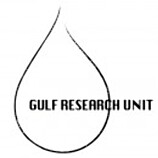
Archive: Gulf Research Blog
Blog articles from 2009 to 2012. The Gulf Research Unit is research programme based at the University of Oslo.
Do Israel, Iran and Saudi Arabia heed Sun Tzu?
Denne artikkelen er over ti år gammel og kan inneholde utdatert informasjon.
By: Torgeir E. Fjærtoft
The ancient Chinese theorist on strategy from 476 – 221 BC, Sun Tzu, whose presumed timeless observations have been embraced by such diverse figures as Napoleon, Mao Zedong and Vo Nguyen Giap, as well as modern military and business leaders, do Israel, Iran and Saudi Arabia heed him in the current confrontation? In his work, The Art of War, Sun Tzu warns in part III, Attack by Stratagem, “If you know neither the enemy nor yourself, you will succumb in every battle.”
Are their self-assessment and their perceptions of their adversaries entirely realistic, given the stakes and risks of the conflict?
Iran’s supreme leader, Khamenei, seems emboldened by the perceived US failures in Iraq and Afghanistan and impending US withdrawal from Iraq to continue defying concerned countries with confrontational rhetoric and the nuclear program, presumably trusting Iran’s ability to prevail politically and ride out any attack. Should this indeed be his perception, he probably underestimates Iran’s vulnerabilities, likely to be further aggravated soon by sanctions against Iran’s Central Bank. Consequences of war would be terrible; potentially catastrophic in the event of a war spinning out of control as the result of preemptive strategies, panic and decentralized and fragmented Iranian command and control structure. The Supreme Leader most likely also underrates the capabilities of Israel and Saudi Arabia – and fails to grasp the extent of their desperation facing a threat they perceive as almost of existential gravity. At the same time, the previous Iranian leverage against Israel by way of Hezbollah has now been weakened by developments in Syria, the Iranian route to Lebanon, a change leaving Israel less vulnerable to Iranian counterattack. Israel could easily weaken further Iran’s collusion with Syria by compromising on the Golan Heights. A regime change in Syria, still pending, could present Israel with a window of opportunity to dramatically improve its strategic position versus Iran.
Israel’s current government could, in spite of dire warnings to the contrary by Israeli military and intelligence experts, be bent on stopping by preemptive attack Iran’s nuclear program, irrespective of risks and consequences because they perceive it as an existential threat. Their assumption is probably that an Israeli attack would force the hand of any US president to join, should Israeli forces prove insufficient.
But would the now war-weary US public necessarily support a new risky military campaign in the region after the attrition in Iraq and Afghanistan, especially if the war were precipitated by another country –even Israel? Also, by escalating the military and political leverage against the Iranian leaders beyond a certain point, the unintended side effect could be to strengthen the domestic support for the Iranian regime by rallying also opposition forces behind the leadership, otherwise divisive, in an effort to contain perceived threats to the nation (even if some blame President Ahmadinnejad for enabling aggression against Iran by his provoking rhetoric). Consequently, the very strong US response to the alleged Iranian assassination plot against the Saudi Ambassador to Washington, a stepped-up political pressure probably intended also in defense of Israel, could prove self-defeating as a diplomatic strategy: The pressure, by inducing Iranians to rally behind the otherwise resented regime, could inadvertently provide cunning Iranian leaders with a motive to create the kinds of threats the pressure was intended to contain.
Saudi Arabia’s royal family probably feels left vulnerable by the US policy of not supporting allied rulers against their domestic opposition in Egypt and Bahrain, as well as by the Shia protests in the Eastern provinces and Bahrain, which they attribute to Iranian influence. The recent allegations of an Iranian plot to kill the Saudi Ambassador to Washington have no doubt confirmed the Saudi perception of a threatening, dangerous Iran. To counter both the unsettling force of the Arab spring and the Iranian threat, they now seem to seek closer collusion with Israel, possibly including operational cooperation in the case of an Israeli preemptive attack on Iran’s nuclear installations. Furthermore, the Saudi royal family probably sees their huge arms procurements both as a means to acquire allies as well as a prepositioning of equipment for US and other forces in case of war with Iran. But has Saudi Arabia surrendered the ultimate decision of attack to others less vulnerable? Saudi Arabia’s vital oil fields would be within striking distance of an Iran bent on counterattack, which, given the decentralized and fragmented Iranian command and control structure, could easily spin out of control. As a consequence, Saudi Arabia could conceivably end up suffering the main collateral damage of an attack against Iran.
Su Tzu also said, in Chapter XII, The Attack by Fire, “the enlightened ruler is heedful, and the good general is full of caution.”






